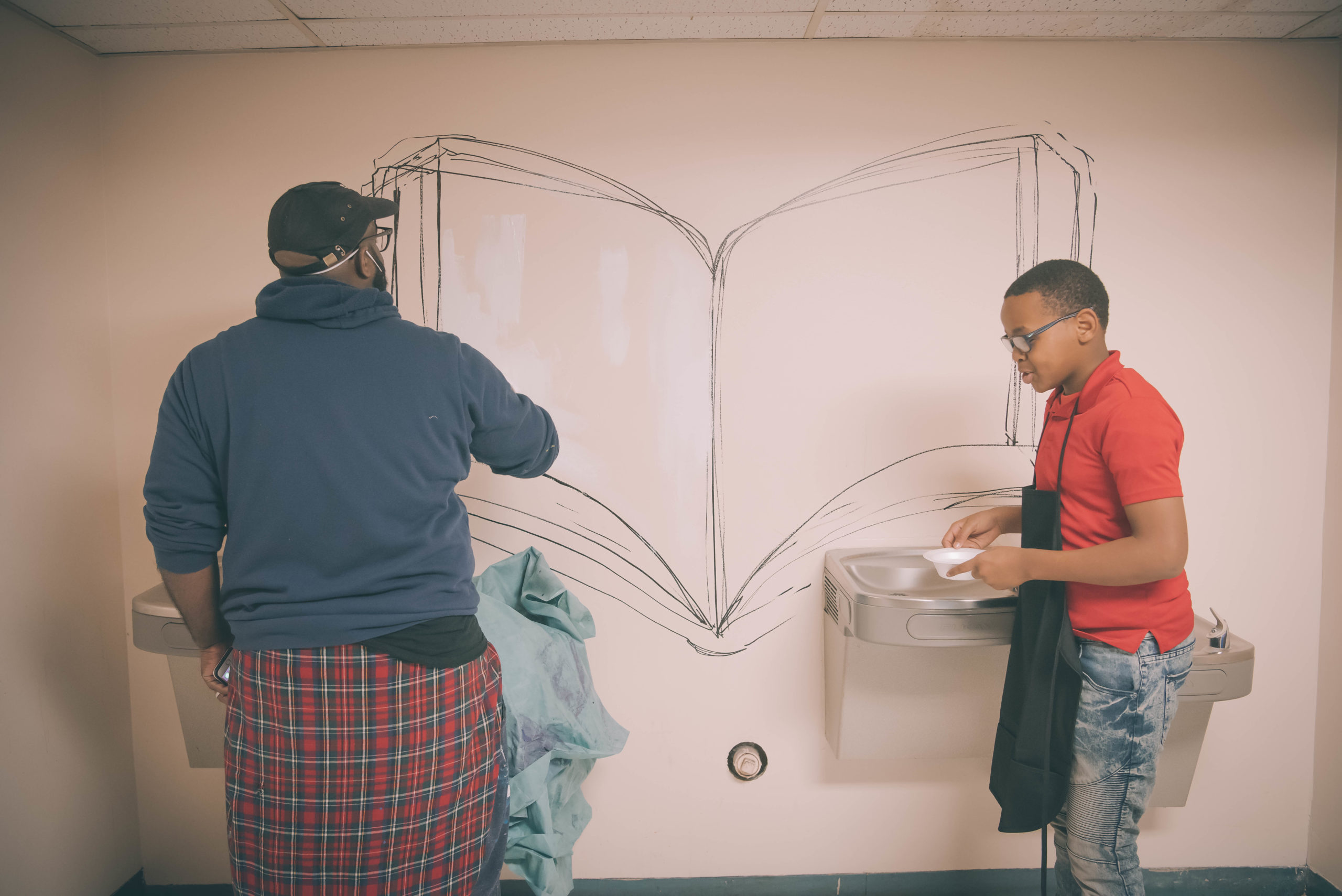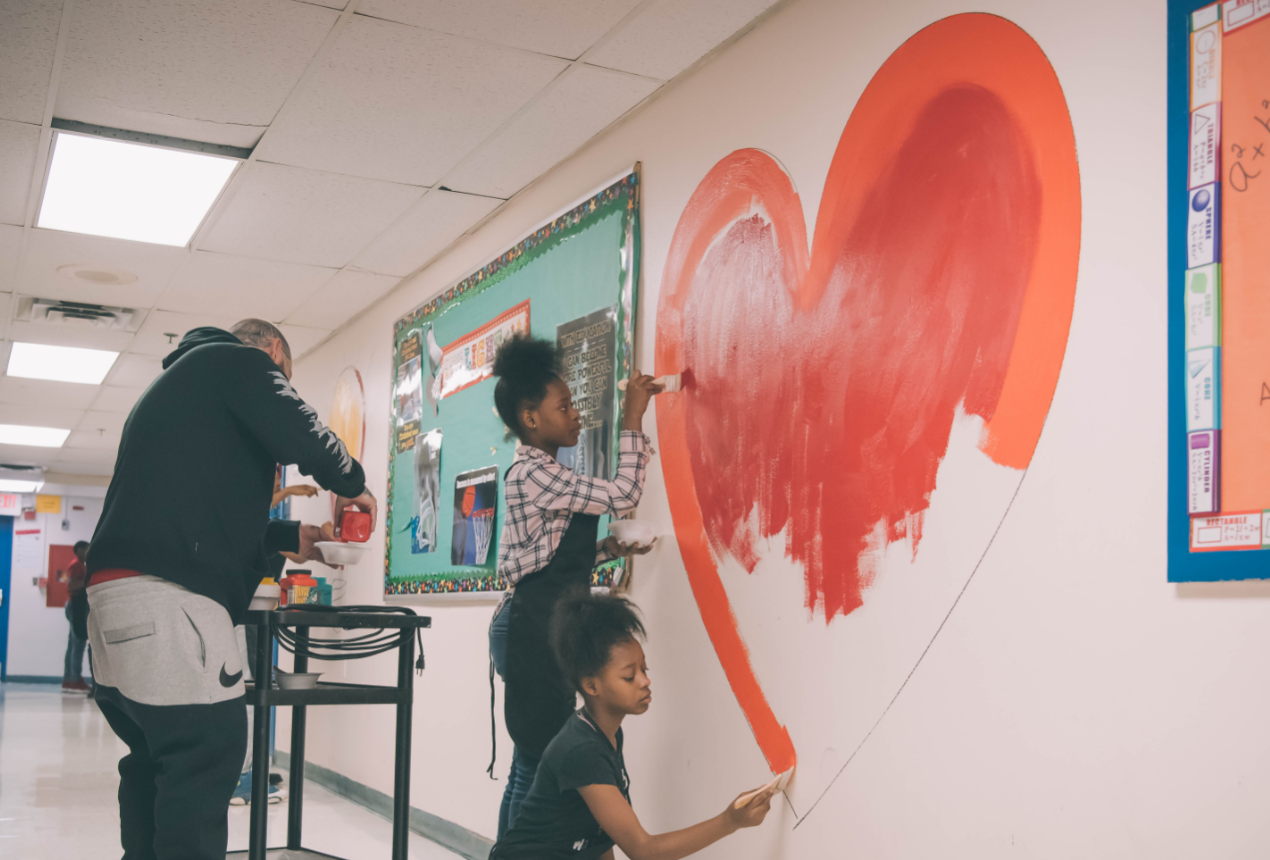SCHOOL LEADER DEVELOPMENT
SEN leader development programs help districts build effective career ladders through which educators can develop and hone their leadership and change management skills to maximize impact on student outcomes
OVERVIEW AND PURPOSE
In SEN’s leadership development program, we partner with districts to identify talented and promising educators early in their career, train them to effectively lead adults in their school community, and nurture them towards opportunities for increased impact. The program, which develops aspiring leaders at different levels of the school, helps build a pipeline of future team leaders, assistant principals, and principals across a district. Moreover, the program aims to increase the likelihood that participants stay in the field of education–and in their district more specifically–as they are recognized and developed for promotion.
PIPELINE DEVELOPMENT
The program works with multiple staff members at three tiers of the leadership ladder within a single school. These tiers include Building Administrators, who manage and develop team leaders and set priorities, Emerging Leaders, who direct, coach, and manage (formally or informally) a group of teachers, and Lead Learners, who are interested in school leadership and have demonstrated impact in the classroom or in student culture work. Within each participating school, staff members from across the leadership levels work as a team on a specific school improvement initiative. Individual participants benefit from explicit, role-specific leadership coaching within the context of the initiative. Typical components of the SEN program include team coaching sessions and project development, school and role-specific professional development, individual coaching sessions (including onsite observations and feedback), and spotlight sessions, which highlight effective practices throughout the school or district.
SCHOOL IMPROVEMENT INITIATIVES
Unlike many other leadership development programs, participants improve their leadership skills in the context of a real-world school improvement project that the team undertakes together. Participants from across the three leadership tiers work as a team to align, monitor, and tweak action steps mapped to a common school-wide initiative, and they work individually, with coaches, to develop their leadership competencies and execute the role-specific best practices aligned to these action steps. Examples of past projects include integrating student work analysis protocols into weekly teacher development sessions, improving Tier I supports for ELL students across the school, and launching a restorative justice approach to student discipline.
SCHOOL CULTURE COACHING
When initiatives focus on improving school culture we partner with school leadership to foster a culturally-responsive school culture and climate stemming from the core belief that children learn best when their needs for safety, belonging, and esteem are addressed with intention. We believe that the self-actualized student is one who feels welcomed, wanted, and valued by their school community.
Culturally Responsive School Culture Coaching
School Empowerment Network (SEN) culture work challenges schools’ traditional systems and structures which serve as barriers to relationship-building and student achievement. We partner with school leaders to align visions and practices so both become student-centered and student-empowering.
Through our partnerships, we collaboratively interrupt inequitable practices and examine biases to create more inclusive, welcoming, multicultural school environments for adults and children.
Our culturally-responsive school culture and climate work stems from the core belief that children learn best when their needs for safety, belonging, and esteem are addressed with intention. We believe that the self-actualized student is one who feels welcomed, wanted, and valued by their school community.
SEN works with leadership teams to develop concrete tools and practices that create a student-centered culture and strengthen bonds between students and the school community:
SAFETY |
BELONGING |
ESTEEM |
|
SEN-coaches schools ensure no problem goes unaddressed. To ensure student safety, SEN can help school leaders design:
|
SEN-coached schools leverage relationships as drivers for change. To foster student belonging, SEN can help school leaders utilize:
|
SEN-coached schools see students as valuable contributors to the community and regularly solicit their voice. To promote student esteem, SEN can help school leaders implement:
|
TOOLS AND PRACTICES |
INTENDED OUTCOMES |
AS MEASURED BY |
|
Safety
|
|
|
|
Belonging
|
|
|
|
Esteem
|
|
|
Lead Learner (LL) |
Emerging Leader (EL) |
Building Administrator (BA) |
|
This program is for.. |
High-performing teachers or culture team members interested in leadership opportunities. | Team leaders charged with directing, coaching and managing (informally or formally) a group of teachers, or culture staff. | Assistant Principals and Principals interested in developing their leadership skills to improve student outcomes in their school. |
Basic role responsibilities |
Run a model classroom and coach a single peer teacher. Model culture team responsibilities and coach a single peer on the team. | Lead grade teams, department teams, culture teams, or PLC groups, who will meet weekly to develop and apply mission-aligned practices in the school. Provide individual coaching to all staff on the team, using observation and feedback cycles, review of written materials and collaborative data analysis. | Manage performance of the team leaders in the school and develop their effectiveness with the leadership competencies. Accountable for all community members’ day-to-day adherence to the school’s mission and values and strategically use the structures below to address shortcomings and magnify strengths. |
High-level program design |
Participants engage in monthly team meetings identifying mission-aligned best practices and complementary competencies as areas of focus. During individualized coaching visits participants are trained in best practice delivery followed by coaching and feedback on implementation efforts. Lead Learner best practices center around classroom teaching and social emotional work with individual students, teachers and families. Additionally, Lead Learners are coached to develop the same skills and strategies in a peer educator as they are exposed to the work of adult development. | Participants engage in monthly program sessions, during which they identify the mission-aligned best practices and complementary competencies they’d like to focus on developing . During individualized coaching visits, participants are trained in best practice delivery followed by coaching and feedback on implementation efforts. Emerging Leader best practices center around vision-driven team leadership and the execution of improvement cycles. They will learn systems and strategies for team leadership and progress-monitoring and will receive additional support in coaching their team members. Participants in the Emerging Leaders program have the opportunity to earn credits towards their Building Administrator’s license. | Participants engage in monthly program sessions, during which they identify the mission-aligned best practices and complementary competencies they like to focus on developing. During individualized coaching visits, participants are trained in best practice delivery followed by coaching and feedback on implementation efforts. Building Administrator best practices center around vision-driven leadership, systems and structures for continuous improvement, and individualized support in developing leadership competencies as needed. This program should help BAs to improve student outcomes in their building while deepening their skill as empowered school leaders. |


